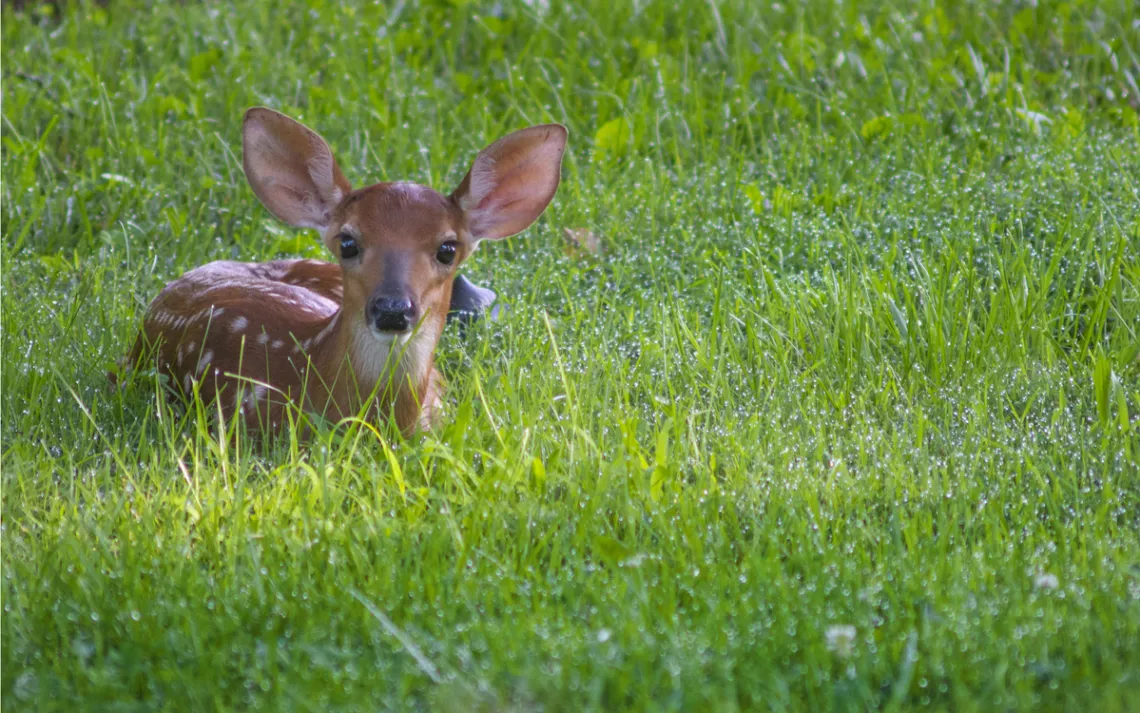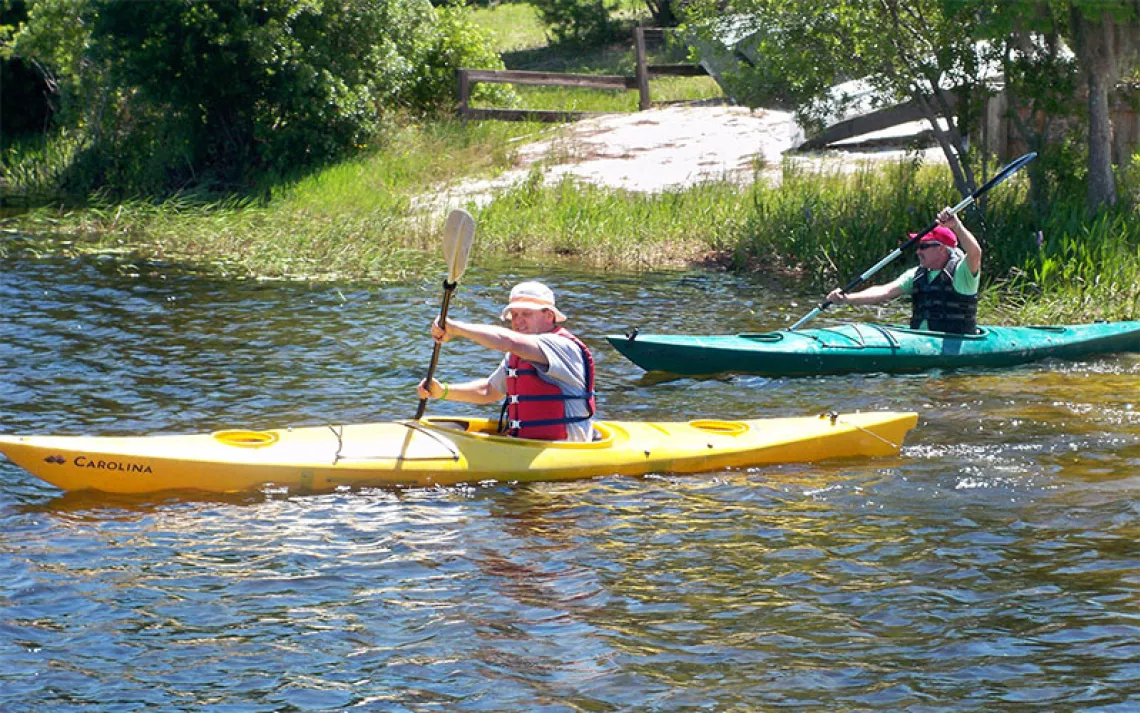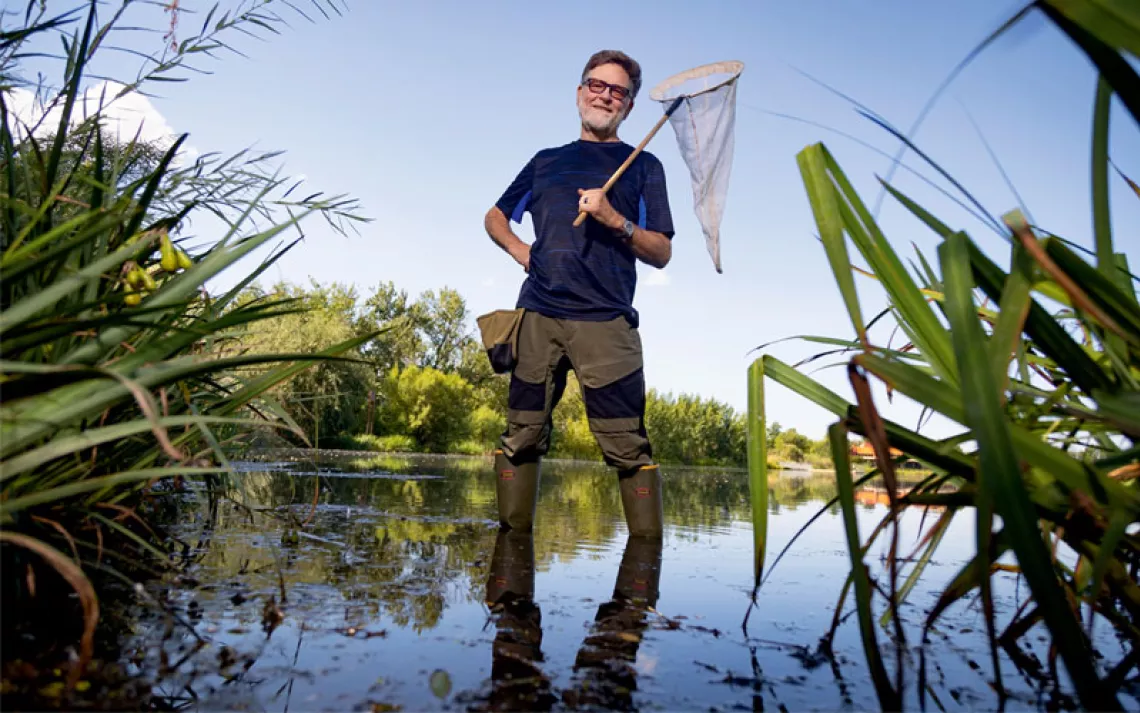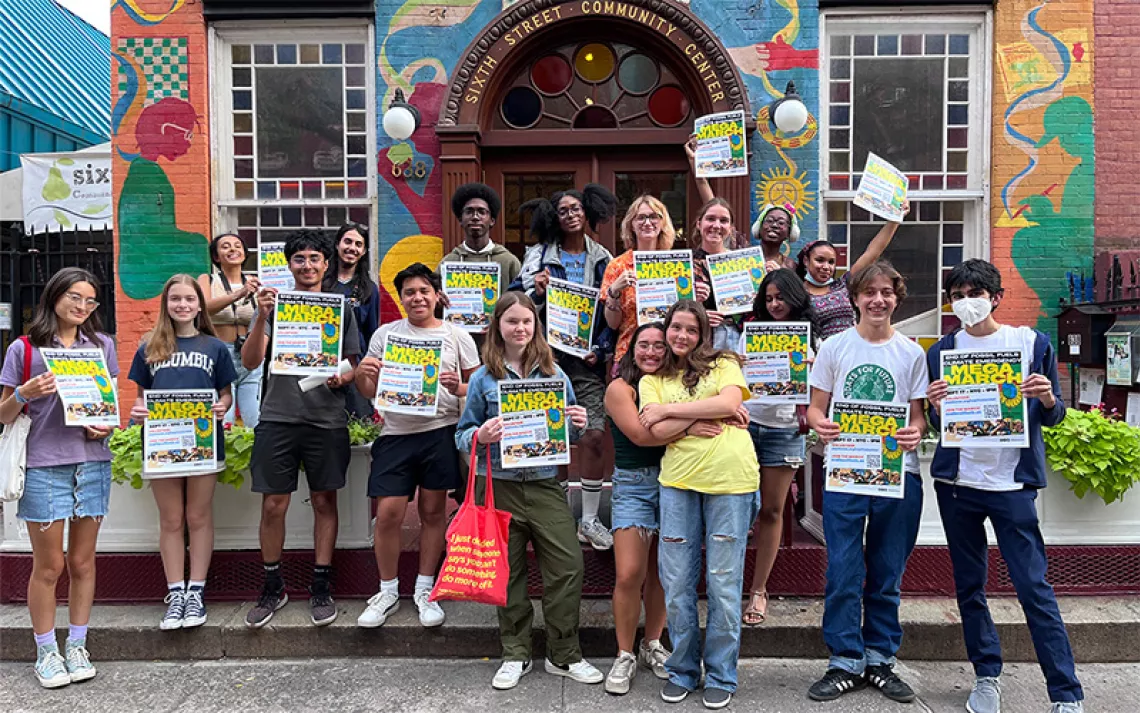So You Want to Be a Wildlife Biologist?
First, learn statistics. Then, get on Twitter.
Like a lot of us, Asia Murphy watched nature documentaries when she was a kid and thought, “I want to do that.” Unlike a lot of us, today Asia Murphy is a wildlife biologist. She has studied voles on the Minnesota prairie and carnivores in Madagascar, among other species. She’s finishing up an ecology PhD at Penn State, which involves using camera traps to study how the presence of different carnivores affects the prevalence of white-tailed fawns in Pennsylvania. (That last project goes by the hashtag #whoseatingbambi.)
Murphy was kind enough to recently share her time for a long phone conversation about the dream and the reality of being a wildlife biologist. This is the second in a series of interviews about what jobs involving environmental protection are actually like—as opposed to what people think they are like. In the first installment, I interviewed an environmental lawyer.
So, a lot of kids really want to study wildlife when they grow up. I sure did. How did you figure out how to actually do it?
It was mostly because of the whole fantasy version of what the job would be like, based on documentaries that I’d seen on National Geographic and the Discovery Channel. As a kid, I thought it would be more like driving around and looking at animals because that's what most documentaries are. Scientists are interviewed for those documentaries, so I knew that scientists could do it. I googled “jobs easy to work with animals,” and “wildlife biologist” came up. I knew that I didn’t want to be a zoologist.
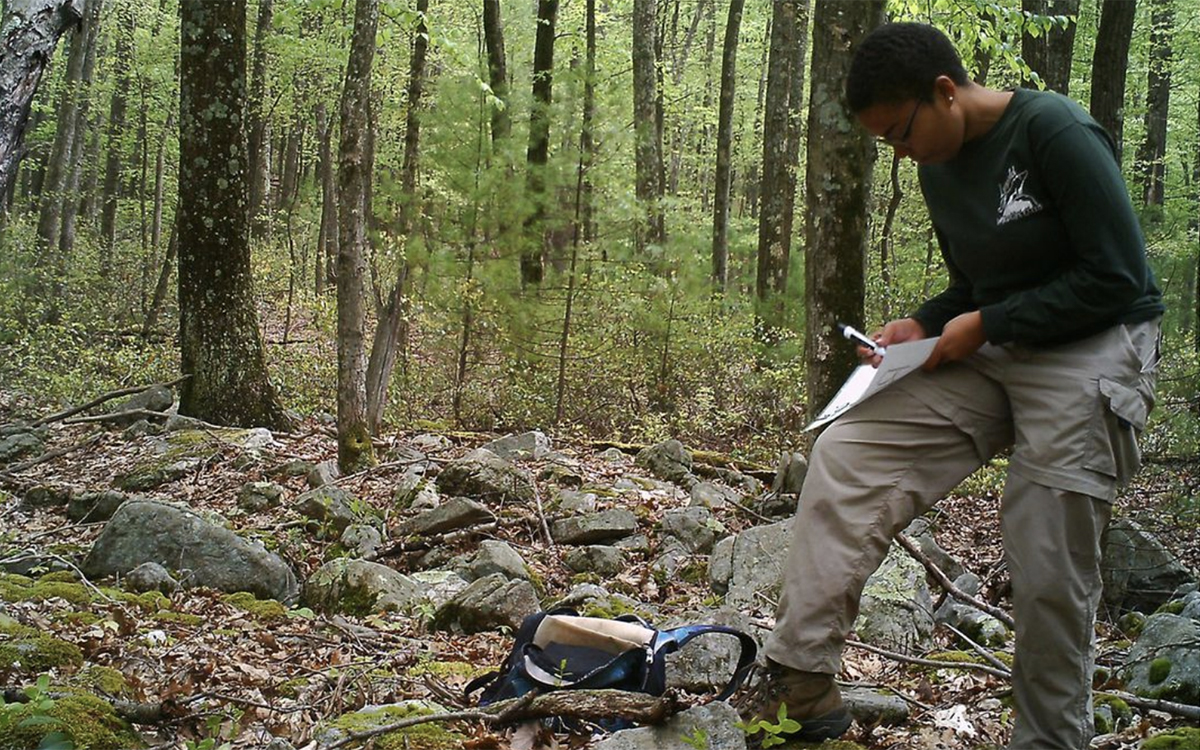
Murphy at work in Pennsylvania, caught by a camera trap | Photo courtesy of Asia Murphy
How did you know that you didn't want to be a zoologist?
I wasn't really interested in using a microscope and identifying species based on things like leg length or genes. I wanted to be outside. And I volunteered at the zoo in high school. The people were very nice, but I knew I didn't want to work with wild animals that were in cages. I wanted to see them in their natural habitat.
I found universities that have a degree program for wildlife science. I applied, and I got into North Carolina State.
All of my classes there were about game management. I thought I was going to have to focus on things like white-tailed deer and turkeys—basically making sure that their population stays stable enough so that people could hunt them. That was not my cup of tea. But I didn't know how to get to the point where you could work on other things. I didn't know what research was. I had never done research before.
Then, in my sophomore year, I applied to a whole bunch of NSF REU sites—which are National Science Foundation–funded programs for undergrads to get research experience. Kids can go and stay at a university or biological station, work on a project, and get mentored by a professor. The NSF pays for room and board, and they usually give you a stipend.
I went to St. Olaf College in Minnesota. And the person I was working with, Dianne Angell, she was working on small mammals and prairies. That was my first fieldwork experience. I had never done that before—actually going out and trapping rodents. I had never held a wild animal before. That's basically how I learned what wildlife biologists actually do. It's totally different from the documentaries.
You basically, like, went out and trapped rodents and it turned out to be awesome?
Yep yep yep. I did not like the ticks, but I liked being outside. I liked handling animals. I liked getting pictures of the animals. I liked figuring out what they were eating and how that was different between the different types of prairies.
What were they eating?
Basically we were studying the difference between native and exotic prairies. By “exotic,” I mean prairies that were bulldozed or whatever, and then they tried to bring them back with different kinds of plants. The rodents in the exotic prairies were eating more introduced grasses instead of the native ones.
How does the work you do now stack up to what you learned in school? What did you get trained in versus what has actually been useful to you?
In undergrad, I was mostly taught basic zoology, like mammalogy—how to identify this mammal, how to identify this fish or this bird. How to make sure that populations are stable, etcetera, etcetera.
But I didn't get a lot of the statistical or analytical skills. I wasn't taught about the kind of analyses that you can run on data and why you should or shouldn't run it on certain kinds of data. I wasn't taught about things like using ArcGIS [mapping and analysis software] as much as I should have been.
Learning how to use a compass or GPS would have been awesome to learn. Basic applied skills seem to fall off on wildlife curriculums for some reason. Which is weird, because we're mostly outside doing applied stuff. You would think they would teach us that kind of stuff.
Oh—also how to write well, how to give a presentation well, and how to teach. I got teaching assistantships for two years, and I was never taught how to teach. I did get to sit in on a graduate fellowship writing class when I was a senior. If you can find a fellowship writing class, that's great. A lot of people aren't taught that kind of stuff, which is weird, because we spend so much time doing it.
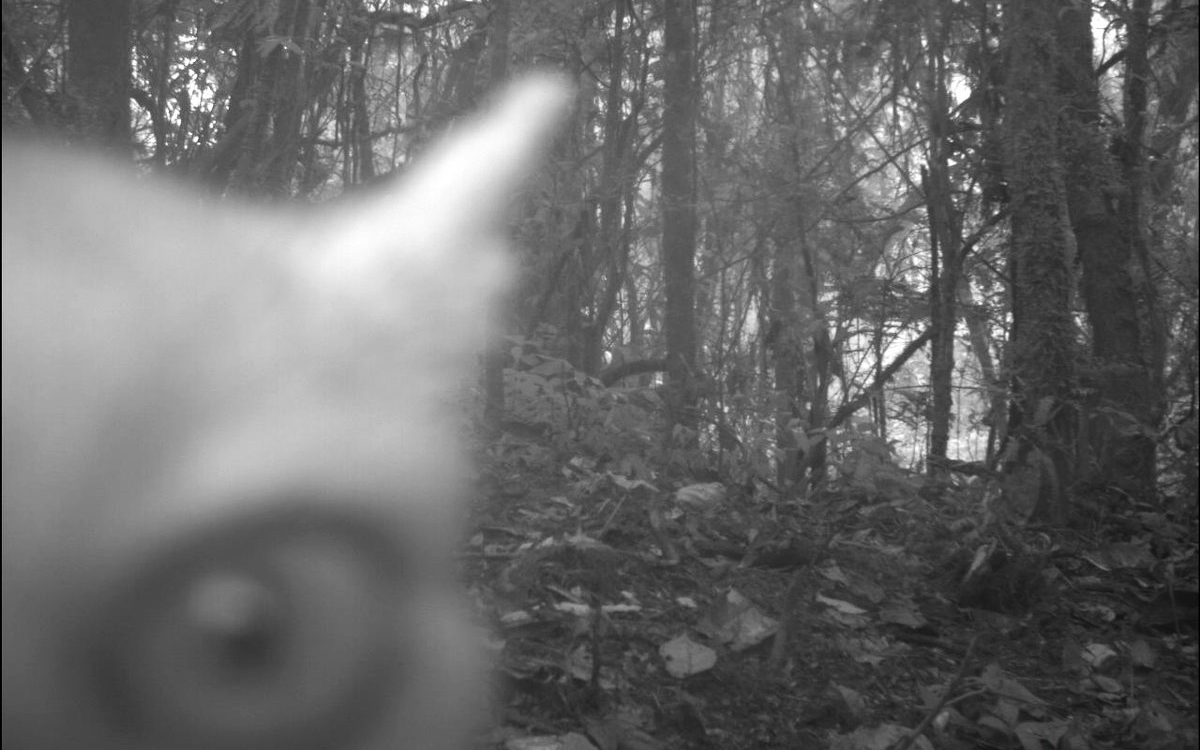
Fosa inspecting a camera trap in Madagascar during Murphy's research. | Camera trap photo courtesy of TEAM Network and CentreVal Bio
You're really good at camera trapping. Is that something that you were taught in school, or did you have to teach that to yourself?
No, that was actually another research experience. I got into a program with Marcella Kelly, who became one of my master's advisors. She's all about camera trapping, so she taught me how.
Was camera trapping relatively new technology at the time?
Camera trapping has been around since the early 1900s—basically for people who just want to take pictures of wild animals. But Ullas Karanth—he's this biologist in India—set these camera traps and put them out in a national park and used them to figure out how many tigers there were. That was groundbreaking.
What are some other jobs or fields that people with degrees like yours migrate to if they get burned out? Are there adjacent fields that people tend to wind up in?
I see a lot of people do things like environmental consulting. They do surveys for businesses at certain plots of land where they want to make sure there's nothing endangered on it, so that they can go build on it.
I know a lot of my classmates from North Carolina State have gone on to trapping nuisance animals.
Like raccoons?
Yeah. It would be something like raccoons. Wildlife control.
You can definitely be a state biologist. Work for Fish and Wildlife Service or USGS [US Geological Survey]. Outside the field, it's kind of limited.
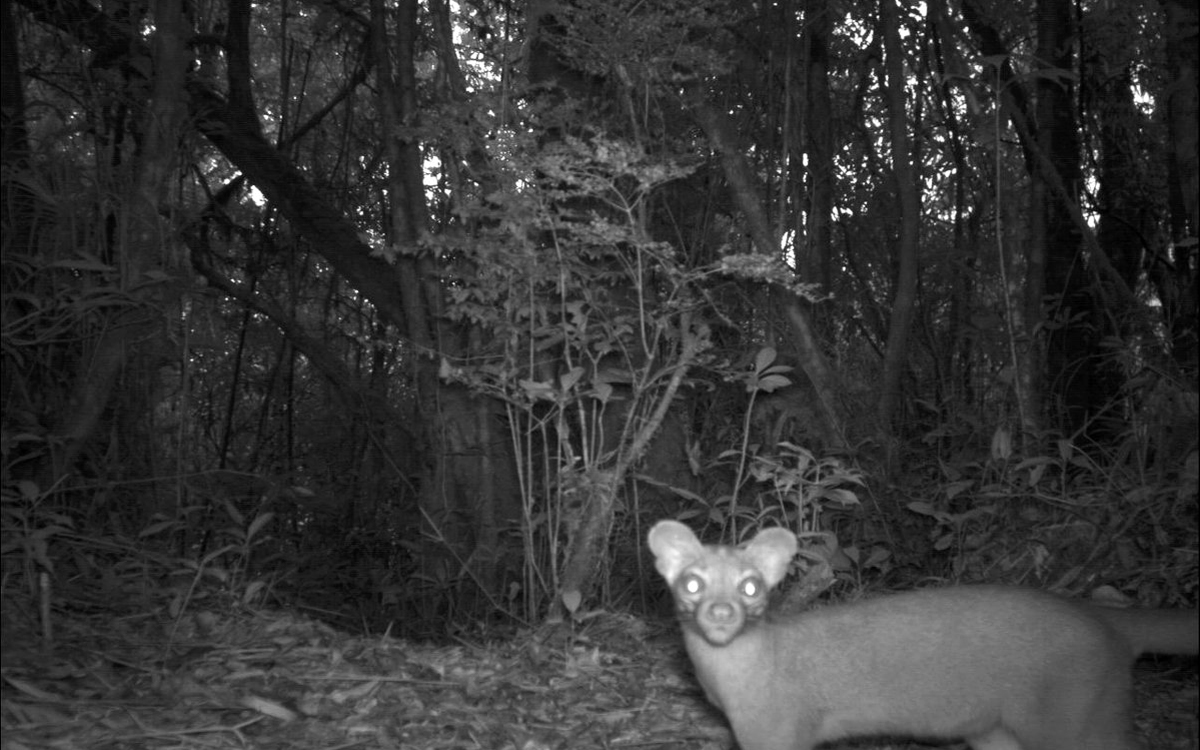
One of the many fosa spotted on the prowl in Madagascar during Murphy's research. | Camera trap photo courtesy of TEAM Network and CentreVal Bio
You've said that wildlife surveys employ local people too. Does that mean that a lot of your job is also working with local people in the areas where you do research?
Yeah.
What's that like? Did you have to learn the local language in Madagascar?
I did. People speak English in Madagascar, but the official languages are French and Malagasy. I chose to learn Malagasy. It took me four months to become remedial at it. I was lucky that the Wildlife Conservation Society had some people on hand that kinda knew English. WCS has a bunch of local researchers and local field assistants in Maroantsetra, which is the town in north Madagascar where we live.
Before we go out into the actual field—the rainforest—we hired them as field assistants. We also worked with the local communities to hire porters or a cook or a local guide for each site. They knew where all the best lemur spots were.
Is there anything that you wish you'd known before you started school or at different points of your education? What would you tell someone who's like a younger version of yourself who is trying to figure out how to do it?
I would tell them that the chance of me actually doing what I wanna do after graduate school is about as likely as the chance of me becoming a published author. Because before I did my research program in 2010, I was thinking about transferring to a creative writing major. I decided to stay in fisheries and wildlife because I thought I'd make more money that way, and I would have more job stability. Which isn't quite true.
I would tell myself to network, because it is really all about who you know. I was really, really lucky. My connection to Marcella came through a connection I had with a then PhD student at North Carolina State named Nyeema Harris. She's now an assistant professor at the University of Michigan. They were connecting undergrads to graduate students, and I was connected to her because she was the only black wildlife graduate student.
She introduced me to Marcella. Marcella introduced me to Sarah Karpanty, who actually had the funding for the Madagascar project. Even though I don't like networking because I'm kind of introverted and antisocial, basically I got to where I am now because of who I knew. Which is kind of sad, and not really fair. But it is what it is.
I would tell myself to learn R. It's a free statistical program. Basically everybody is doing their analysis in it, and I'm still struggling to learn it. If you can learn R, you're ahead of the game.
I wouldn't tell myself this, because I don't care about it, but for anyone who is a minority, if you're in wildlife, you are probably going to be the only one a lot of the time.
A lot of the time people will see a black person in a department that's mostly white people, and they'll say, "That's the perfect person to ask what we can do to get more black people in.” Or they will ask you to guide around these kids that happen to have one black person in it. People expect you to do things because of what you are, and they don't think.
A lot of times that stuff doesn't pay. You can put it on your CV, but ...
Don't let people guilt you into things like diversity initiatives or mentorship initiatives unless they actually pay you and unless you actually want to do it.
Twitter. Get on Twitter.
Don't think of a professorship as the end-all-be-all. Stay flexible. And I don't mean in terms of where you are willing to live—I mean what you are willing to do and what skills you are willing to learn or what jobs you are willing to apply for. It's highly unlikely that you're actually going to be able to be a professor at a university. You've got to be ready to do things other than what you came into wildlife to do.
 The Magazine of The Sierra Club
The Magazine of The Sierra Club
